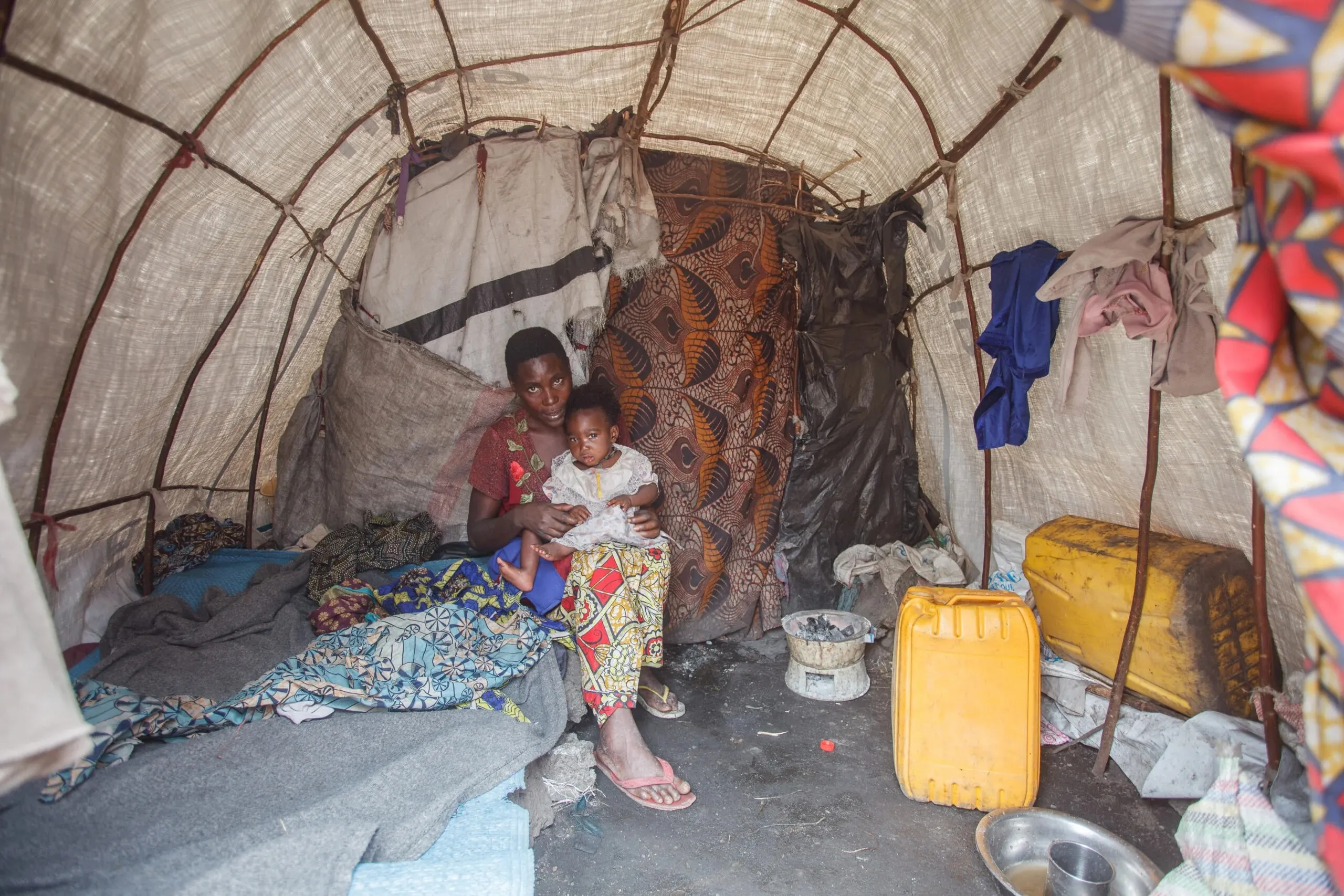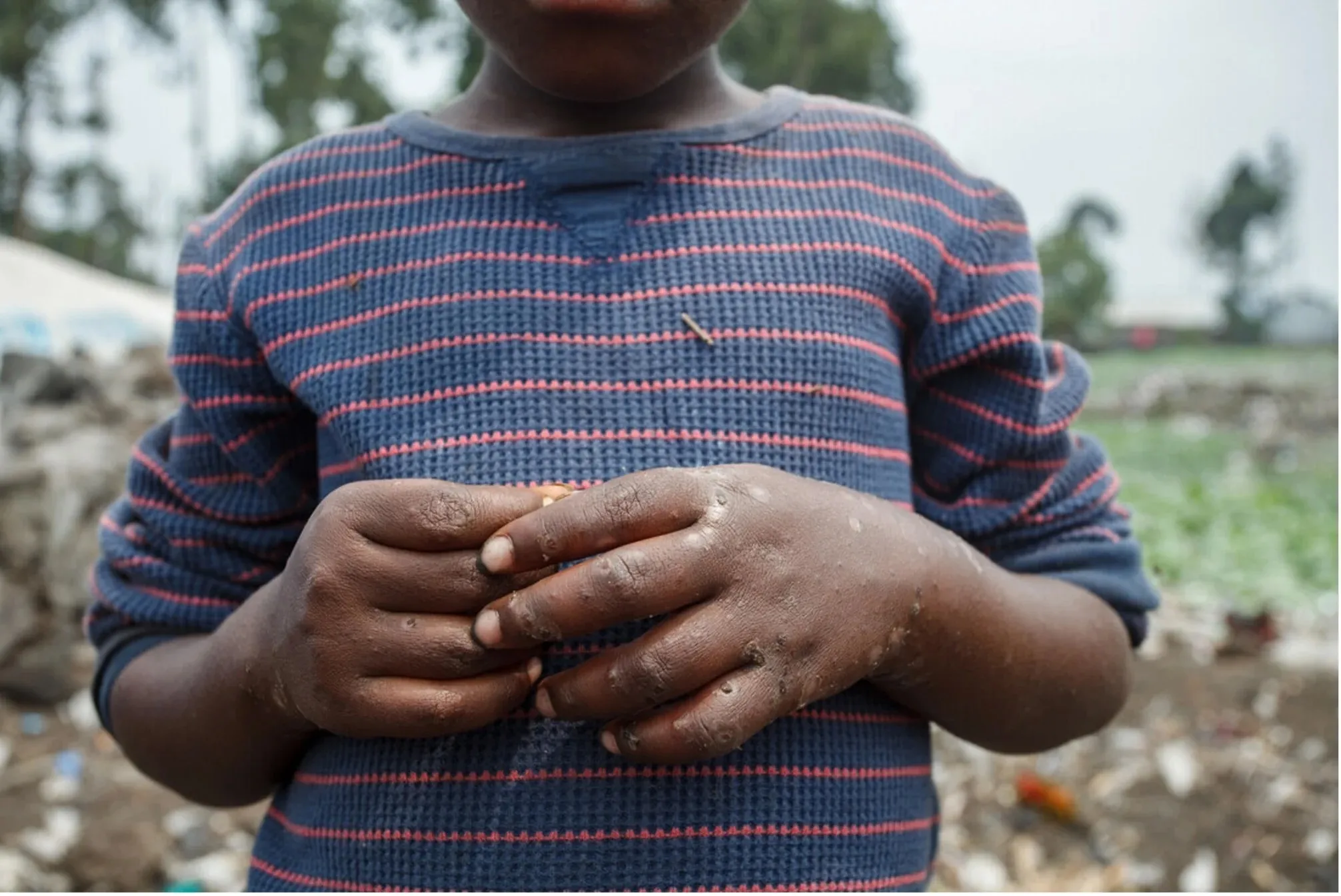Riziki has tried to separate Evodie from the other children, knowing that Mpox can spread through touch.
“It’s not to discriminate against her, it’s just a way of limiting contamination,” she adds, highlighting the lack of proper healthcare and information.
“There are no means to prevent the spread of the disease here,” she said. “I’ve tried to separate her from the other children, but it’s impossible as we don’t have enough space.”
The outbreak has not only swept through these camps but crossed the borders of neighboring countries, threatening to escalate into a regional crisis. The lack of vaccinations and treatment options, coupled with misinformation, puts thousands more at risk daily.
“Women fleeing violence now face infection which is fast spreading in overcrowded camps where soap, clean water, and proper healthcare are scarce,” said Sidibe Kadidia, CARE DRC Country Director.
“Underage girls who have been forced to engage in sex work to provide for their families are at high risk of being infected and transmitting the disease. Women and girls taking care of infected family members, especially babies, are highly exposed.
“On top of it all, stigma and lack of accurate information about Mpox are all too common, often meaning people only seek treatment when the symptoms are already severe and highly infectious.”
Experts on the ground are urging the international community to increase direct funding to local women-led organizations, whose involvement is critical to curbing the outbreak. With only 37.4% of the humanitarian response plan funded, immediate action is needed to prevent a wider catastrophe.
The Mpox outbreak is only the latest in a series of public health emergencies in DRC even as the rainy season approaches. The deteriorating security situation has also made it extremely difficult to provide necessary humanitarian assistance, leaving many camps underserved.




